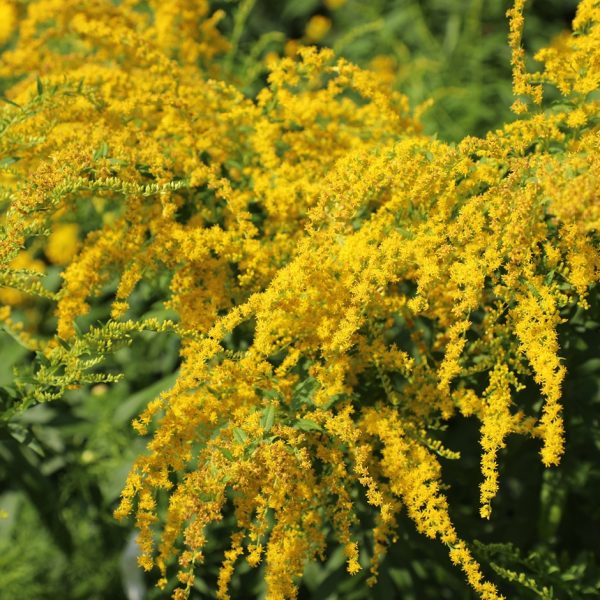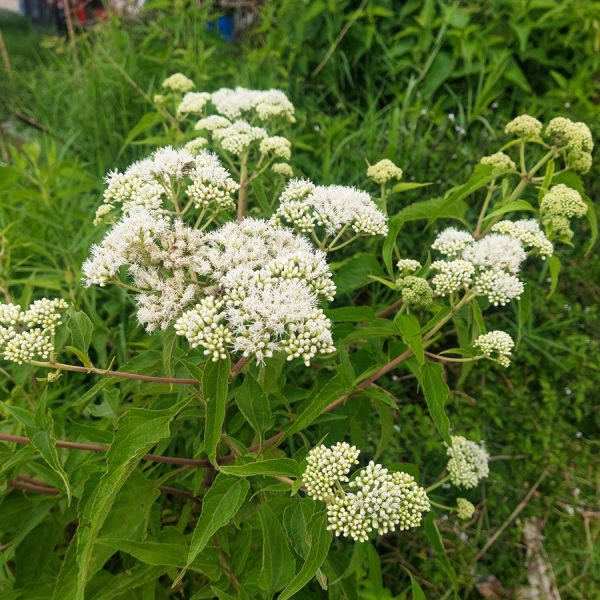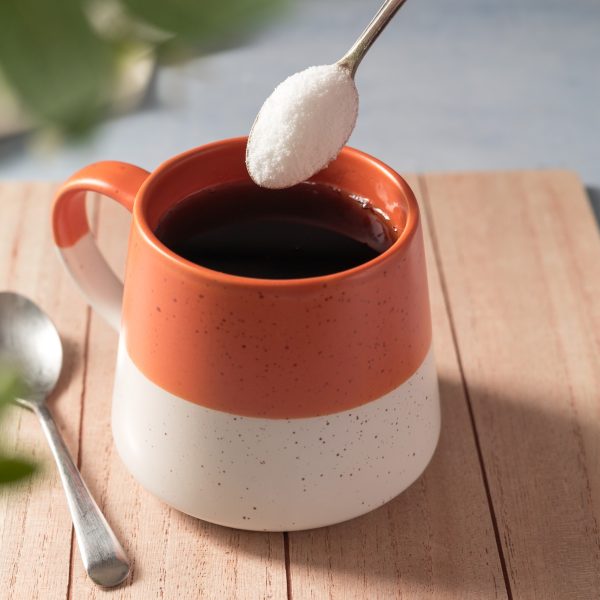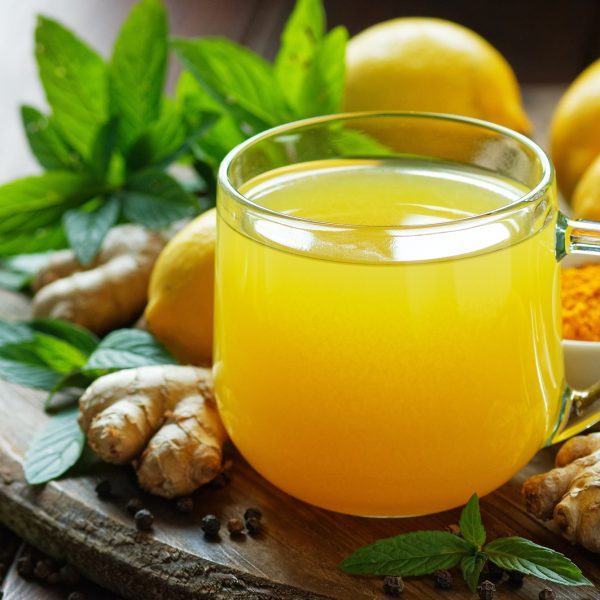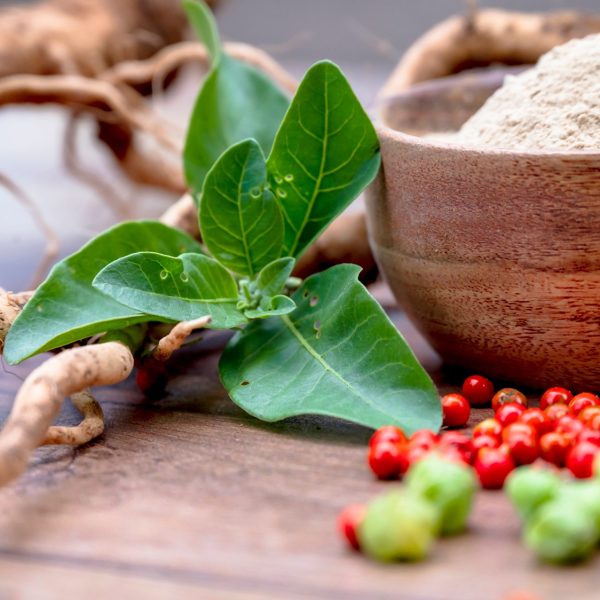Ayurveda doesn’t view ageing as a disease process but as a natural, inevitable progression where the mind and body can remain healthy. We explore elderly health from an Ayurvedic perspective.
Understanding elderly health
Ayurveda doesn’t view ageing as a disease process but as a natural, inevitable progression where the mind and body can remain healthy (2). As the science of life and longevity, Ayurveda aims to improve quality of life and self-dependency rather than just extend the years of life (1). The aim of Ayurveda is to achieve total overall good health on all levels. Jara Chikitsa or Rasayana Chikitsa is one of the eight specialised branches of Ayurveda and is dedicated to elderly/geriatrics and rejuvenation therapy. This is one of Ayurveda’s key strengths (3).
How does elderly health work in Ayurveda?

Jara, also called Vardhakya (ageing), is defined as which has become old by the act of wearing out (2).
It is our daily choices and actions that are largely responsible for rapid ageing and degeneration of the body and mind, and nobody wants to grow old or suffer from degenerative disease. Modern medicine often can’t offer much apart from managing diseases once they arise. Ayurveda however can help with prevention of diseases and support the process of healthy aging with several lifestyle and dietary measures (1).
In Ayurveda, there are three stages of life known as Vaya. Balavastha up to age 16, Madhyavastha 16-60 and Vriddhavastha or Jirnavastha after 60 which is the elder years (1).
In our elder years the vata dosha dominates so there are more catabolic activities taking place in the body which can lead to many chronic diseases such as osteoarthritis, Alzheimer’s, Parkinson’s, dementia, hypertension and stroke. The sense organs, speech, memory and cognition can also degenerate (1).
Agni (digestive fire) weakens with age leading to diminution of the dhatus (tissues), therefore leading to a decrease in ojas, the prime essence responsible for vitality and immunity (14).
Unhealthy changes in the body and mind occur due to imbalances within the doshas, dhatu (tissues), agni (digestive fire) and malas (metabolic wastes) which are all influenced by lifestyle, diet as well as the rhythms and cycles of nature (1).
Understanding the root of elderly health in Ayurveda
Doshas
According to Ayurveda, there are three primary life forces that are responsible for all physical and psychological functions in the body. These are known as the doshas, vata, pitta and kapha (7).

Vata is closely related to Prana (vital energy) and governs all movement, pitta governs digestion and metabolism, kapha controls anabolism, is the energy of building and lubrication that provides the structure to the physical form (7).
Everyone is born with their unique mix of doshas called prakriti which need to be kept in balance to remain well and healthy. The doshas also dominate times of day, seasons and lifespan. The first 25-30 years of life is a kapha dominant stage as growth takes place. The middle years are pitta dominant then above 60 vata becomes the dominant dosha. For elderly people, it is important to adopt vata pacifying practices (7).
There are also subtle expressions of the doshas.
Prana is our subtle life energy, the breath of life, which controls breath, sensory perceptions and the thought process. Tejas is the subtle fire representing the digestion and transformation of sensory impressions, thoughts, perception and awareness. Ojas is a subtle immunity that represents strength, vitality and robustness (2).
The ancient classical Ayurveda text, Caraka Samhita, states that there are two kinds of Ojas.
- The Ojas that live in the heart and head, it is subtle and cannot be seen or known directly. We are born with eight drops of Ojas in the spiritual heart. These can be strong or weak and determines our overall vitality throughout life and are fixed for life.
- The Ojas that can be built up or depleted though food, lifestyle, meditation, relate directly to dhatu (tissue) metabolism and kapha dosha. This form of Ojas is not fixed and can be increased though food. These Ojas help us to resist disease, and environmental changes and increase longevity (4).
Agni (digestive fire)
In Ayurveda we are not what we eat, but what we are able to digest and absorb. If agni is weak then food cannot be digested properly resulting in malabsorption and accumulation of ama (toxins). If agni is too strong it can burn the dhatu (tissue) resulting in dhatu degeneration.
Imbalanced agni can result from stress, eating ultra-processed foods or stale foods, from over-eating, eating when not hungry or eating late at night. Food that can’t be digested can ferment in the gut resulting in ama (toxins) (7). Ama can be moved through the body by vitiated vata where it can lodge in a weak dhatu causing degeneration and disease.
The primary agni, Jatharagni, is the digestive fire in the gut which transforms and breaks down food into a nourishing essence called ahara rasa. This is then absorbed by the bloodstream and taken to the liver. In the liver there are five bhuta agni which transform the ahara rasa in to the first dhatu, rasa dhatu. The essence is refined and passed on to the second dhatu which uses it to build itself and then passes an even more refined essence on to the next dhatu. This process is repeated though all seven dhatus with the essence becoming more refined and potent. The last dhatu, shukra dhatu, produces ojas which then moves back through all the dhatus to nourish all the levels of the body (4). If Jatharagni or dhatu-agni is impaired then the dhatus will be low quality so Ojas will also be low.
Malas (wastes)
The body eliminates malas through faeces, urine and sweat. It is important that malas are eliminated daily otherwise toxins can build up contributing to disease and degeneration. (7) Often elderly people do not feel thirsty so dehydration can develop. They might also not be very mobile. Both can contribute towards constipation and retention of toxins. (11)
Signs and symptoms
It is important to pay attention to the changes in the body and mind to determine if pre-mature ageing is occurring. Some of the common signs and symptoms of ailing elderly health are: (15)
- Pain and inflammation – joints, muscles, sense organs, internal organs, head, bodily tissues
- Loss of hair, decreasing skin elasticity, wrinkles, greying hair
- Worsening hearing or eyesight
- Poor balance
- Decrease in neurofunction
- Poor circulation
- Cataracts
- Diagnosed degenerative conditions or sudden heart attacks/strokes
Herbal solutions
Ayurveda is a customised and individual approach. It is always best to seek advice for a qualified practitioner who can offer correct guidance. Rasayana or rejuvenation therapy means “Those therapies that increase the Rasa of the body.” This means the rasa dhatu as a fluid tissue which nourishes the other tissues in the body, and circulates rasa throughout the body. Rasayana therapies tonify and nourish the whole system. They help build and nourish the body and the herbs are also often pungent and stimulating in order to keep rasa circulating.
Each dhatu gets worn down by the dhatu-agni functioning inside it. Agni’s constant metabolic processes wear out the very dhatu that it helps to build and maintain. Rasayana counteract this natural wear and tear by providing extra nutrients in the form of concentrated herbal medicines. Rasayana increase ojas and are particularly good for the elderly helping to achieve a long and healthy life (7).
Rasayana can protect the body and mind from the ravages of age by their non-specific effect on the immune system. They are high in antioxidants so help to prevent damage from free radicals and they bring about proper nourishment, growth and function of all seven dhatus (10).
For Rasayana to be of the greatest benefit for healing and rejuvenation, agni needs to be optimal, ama (toxins) should be cleansed from the system and the doshas should be balanced (10).
Most Rasayana herbs have adaptogenic properties which help enhance resistance to all types of stress. They contain antioxidants which help prevent damage by free radicals. They also provide proper nourishment to all seven dhatus. Rasayana’s should not be taken if there is high ama (toxins) in the body. Always consult a qualified herbalist or Ayurveda practitioner to determine what herbal medicines are suitable and the correct dosage.

Ashwagandha (Withania somnifera)
Ashwagandha is one of the most highly acclaimed rasayana’s (10). Its sweet post digestive taste helping to nourish all seven dhatus, promote ojas and rejuvenate the body. It is excellent for reducing vata and rejuvenating the vata sites of the body, such as bone marrow (11). Ashwagandha increases memory and learning capabilities, strengthens the central nervous system and reduces physical and mental stress and exhaustion, improving elderly health. Ashwagandha is reopened during covalence for weakness, emaciation, for problems of old age such as poor memory, weak eyes and arthritis (7).
Shatavari (Asparagus racemosus)
Shatavari is also an excellent rejuvenator and is one of the main rasayana’s for pitta. It has an affinity for the mind helping to promote memory and mental clarity. It is good for the eyes; it nourishes dry membranes (7). It is adaptogenic, antioxidant, immuno-stimulant and can enhance the level of white blood cells and macrophages. It is used for enhancing resilience to stress, general debility, urinary problems and to help with female hormonal imbalances (10).
Amalaki (Embelica officinalis)
Amalaki has a well-deserved reputation as a powerful rejuvenator herb and is used in many ayurvedic rejuvenative formulas. Amalaki fruit is said to have the highest vitamin C content of all plants so is a very good antioxidant that is beneficial to the immune system. It helps promotes ojas. (11) It’s cleansing and nourishing properties help purify the blood, rebuild tissue after injury or illness and improve eyesight. It helps reduce cholesterol, helps prevent clotting so protects the cardiovascular system. It is well known for relieving debility following illness, stress or old age (7).
Amalaki balances all three doshas. As it has a cooling potency it is especially good for pitta helping to relieve heat and inflammation thought the body (7) in elderly health. It has five of the six tastes, sweet, sour, pungent, bitter, astringent which help to enhance agni (digestive fire) and cleanse the body. It’s sweet post digestive effect makes it nourishing for all dhatu. Amalaki is used in many ayurvedic rasayana formulas (7).
Guduchi (Tinispora cordifolia)
Guduchi is also known as Amrtā or nectar of the Gods indicating its importance in Ayurvedic pharmacopeia (12). It is a rejuvenating tonic that supports the immune system, enhances vitality and supports longevity. Guduchi’s reputation as an ‘elixir of life’ is well earned by how many bodily systems it supports (13).
Guduchi helps to clear ama, strengthen the digestive system and balance gut bacteria. It helps ease joint discomfort, regulates metabolism and blood sugar levels, supports the livers detoxifying work and its adaptogenic properties help to lessen the impact of stressors as well as calm and nourish the nervous system (13).
Guduchi balances all three doshas especially pitta. It has a bitter, astringent taste which helps clear pitta and kapha from the system. It has a hot potency which clears ama helping to detox the liver, kidneys, joints and blood. It’s post digestive effect is sweet and unctuous which helps balance vata and nourish the dhatus (tissues) and fluids of the body (13).

Vacha (Acorus calamus)
Vacha is one of the most utilized brain and nerve tonics in Ayurveda due to its ability to rejuvenate the mind and the nervous system (7). Vacha enhances mental clarity, concentration, speech and the ability to perceive (Buddhi). With its bitter, pungent and astringent taste it clears ama from the srotas (channels) especially the subtle congestion of mental, emotional or energetic forms of toxins. (11)
Vacha is considered the best herb to use for nasya. Care should be taken in case of high pitta as it can increase pitta. This is an excellent method of rejuvenating the sinus and brain as well as increasing prana vayu (11).
Brahmi (Bacopa monnieri)
Brahmi has a long history of use in Ayurveda for rejuvenating the brain, memory and central nervous system (11). Its tastes are bitter, sweet and astringent so can pacify all doshas but if used in excess can aggravate vata. It has a post digestive sweet taste so nourishes all dhatus but especially rasa (plasma), rakta (blood) and majja (nerve) (7).
It is a cooling herb so is good for disturbances of Sadhaka pitta or excess heat which may manifest as inflammation in joints but in excess can aggravate vata (11).
It can be beneficial for anxiety, insomnia, Alzheimer’s, Parkinson’s and dementia. It increases resilience to stressors and helps guard against nervous exhaustion (7).
Guggulu (Commiphora mukul)
Guggulu is very rarely taken by itself, it is mixed with other herbs to enhance and guide them to a specific action in the body. It has strong rejuvenating and detoxifying qualities. It can travel deep in to the dhatus rejuvenating them as well as scraping and clearing toxins. It has an affinity for all the dhatus as well as the digestive, circularity, nervous and respiratory systems. (11) It pacifies all doshas but particularly kapha and vata. Guggulu has a remarkable ability to support balanced cholesterol levels. (7).
Guggulu is made from the sap of the mukul myrrh tree. Saps have an affinity with rakta dhatu (blood). Guggulu helps to purify the blood, support healthy cholesterol levels and scrape toxins from the circulatory system (12). It inhibits the formation of clots, reduces atherosclerosis, helps prevent heart disease and reduces the risk of stroke. It also helps remove toxins from the joints helping to relive any joint complaints. It’s bitter and pungent taste make it excellent for digestion and fat metabolism (7).
Arjuna (Terminalia arjuna)
Arjuna is a good heart tonic for the elderly or people with a history of heart issues as it has no known secondary effects. It balances all three doshas, can thin the blood, lower cholesterol and improve circulation without disrupting the ability of the blood to coagulate. It regulates blood pressure, strengthens the walls of the blood vessels (Raktavahasrota) and can strengthen the heart. (11)
Gotu kola (Centella asiatica)
Gotu kola is a medhya rasayana, it enhances memory, concentration and protects against degenerative aging process such as Alzheimer’s. It helps to relieve stress, anxiety and mental unrest. It is a cooling herb that is excellent for high Sadhaka pitta. Its bitter and astringent qualities make it an excellent detoxifier and anti-inflammatory which is beneficial for arthritis, gout and skin issues. Its sweet qualities help to support the adrenal glands and rebuild energy reserves. It is also a good herb for circulation being particularly beneficial after surgery by stimulating the microcirculation to the area to help healing (7).
Ayurveda formulas

Triphala
Triphala is probably the most well-known ayurvedic formula. Triphala balances all three doshas, is an excellent bowel cleanser that helps support regular bowel movements. It stimulates agni (digestive fire) improving digestion and absorption. It is also a powerful antioxidant.
Triphala consists of three fruits:
- Haritaki: Good for all three doshas, has a scraping effect to help remove ama (toxins)
- Amalaki: Has a cooling effect that helps reduce pitta. It supports the liver and immune system
- Bibhitaki: Good for reducing kapha accumulations and the respiratory system.
Chyavanprash
Chyavanprash also called chyawanprash is a nourishing jam that has been used in Ayurveda for thousands of years and is of great benefit to elderly people. In Ayurveda jams are often used as anupans (carriers) for other herbs, but they are also often used on their own as rejuvenates. It is said that it was formulated by two ancient sages of Ayurveda to restore youth to the elderly sage, Chyawan (13).
The main ingredient is amalaka which is high in vitamin C. Other ingredients include long pepper, bamboo manna, cloves, cinnamon, cardamon, ghee, sesame seed oil and raw sugar (7).
The sesame seed oil and ghee carry the herbs deep in to the dhatu and are called yogavahis (catalytic agents). The sugar acts as a preservative.
It is very nourishing, helps to build ojas and balance vata. It is highly regarded rasayana as it strengthens and revitalizes the whole system in elderly health. (13)
Holistic solutions
Diet
The principle rasayana is food which is the foundation of all other rasayana therapies (7).

It is important to choose wholesome, constitution specific foods that keep agni and the doshas balanced. Ensure all food is freshly prepared. Rejuvenating foods that nurture ojas tend to be heavy and nourishing so can be hard to digest. Balancing agni must be addressed first (10).
Maintaining a balanced agni is key to preventative health. A balanced agni is required to nourish the dhatus to build ojas. During old age the dhatu’s cannot be enhanced but they can be protected and rejuvenated (11).
Support agni by including digestive spices such as turmeric, ginger, cumin, coriander and fennel. Kichari and bone broths are easy to digest and nourishing (7).
There are many rejuvenating foods that also help to pacify vata. Boiled milk is good for debility and convalescence and strengthens ojas. Ghee is the best food for restoring vitality, nourishing the nerves and increasing ojas. Grains such as wheat, oats and rice provide strength. Sweeter fruits and vegetables help increase strength, vitality and build dhatus e.g., dates, raisins, figs, pomegranates, okra, and root vegetables. Jaggery (pure cane sugar) is full of minerals to help build dhatu plus adequate salt intake is required for a tonifying diet (10).
Mindful eating is also very important. All focus should be on the food and not electronic gadgets or the TV. Eat slowly and eat until almost full. Overeating places a strain on the digestive system. Only eat if hungry, eat the largest meal at lunchtime when the sun is high in the sky, don’t eat late and try to eat at the same regular times each day (7).
Lifestyle
During Rasayana therapy relaxation is important. Excess work should be avoided, go to bed early, avoid over stimulation of the senses from social media or TV. Gentle exercises such as yoga or Qi Gong will help to build energy, move the lymphatic system and help the body remove wastes. (11)
Pranayama breathing exercises should be practised to cleanse the mind, increase ojas, balance vata and stimulate agni. Spending time in nature is extremely important as this is the best way to rejuvenate the mind. (11) Abhyanga oil massages aid detoxification, pacify vata and nourish the nervous system. (7)
Dinacharya (daily routine)
This is important to maintain harmony within body and mind that is in tune with the cycles of nature. This helps to keep doshas balanced.
Panchakarma
Panchakarma is a deep and thorough cleanse to remove ama and excess doshas. It is very effective at relieving deep seated diseases and for improving physical and mental health, and elderly health. An annual panchakarma by a qualified practitioner is recommended.
References
- Deshpande, D., n.d. Jara Chikitsa in Ayurveda. [online] Gamrc.org. Available at: <http://gamrc.org/seminar/art/2/F1.pdf> [Accessed 12 July 2022].
- Rao RV. Ayurveda and the science of aging. J Ayurveda Integr Med. 2018 Jul-Sep;9(3):225-232. doi: 10.1016/j.jaim.2017.10.002. Epub 2017 Dec 21. PMID: 29276113; PMCID: PMC6148064.
- M. Agrawal et al. Concept of Jara and its correlation to Geriatrics. International JOurnal of Pharmaceutical and Medicinal Research. 2014; 2(6):165-168
- Smith, V., 2016. Anatomy and Physiology in Ayurveda Dietekon, Switzerland: EIVS Gmbh
- Who.int. n.d. Ageing and health. [online] Available at: <https://www.who.int/news-room/fact-sheets/detail/ageing-and-health> [Accessed 15 July 2022].
- McIntyre, A., 2012. The Ayurveda bible. Alresford: Godsfield.
- McIntyre, A., 2012. The Ayurveda bible. Alresford: Godsfield.
- Upadhyay AK, Kumar K, Kumar A, Mishra HS. Tinospora cordifolia (Willd.) Hook. f. and Thoms. (Guduchi) – validation of the Ayurvedic pharmacology through experimental and clinical studies. Int J Ayurveda Res. 2010 Apr;1(2):112-21. doi: 10.4103/0974-7788.64405. PMID: 20814526; PMCID: PMC2924974
- Doshi GM, Une HD, Shanbhag PP. Rasayans and non-rasayans herbs: Future immunodrug – Targets. Pharmacogn Rev. 2013 Jul;7(14):92-6. doi: 10.4103/0973-7847.120506. PMID: 24347916; PMCID: PMC3842000.
- . McIntyre, A., 2007. Positive Health Online | Article – Rasayana: The Ayurvedic Path to Rejuvenation. [online] Positivehealth.com. Available at: <http://www.positivehealth.com/article/ayurveda/rasayana-the-ayurvedic-path-to-rejuvenation> [Accessed 14 July 2022].
- Smith A.,2009. A Textbook On “Dravyaguna for Westerners” Dietekon, Switzerland: EIVS Gmbh.
- Pole, Sebastian. Ayurvedic Herbs: The Principles of Traditional Practice. Churchill Livingstone, 2013. (189-190)911-192, 304-311.13.
- Upadhyay AK, Kumar K, Kumar A, Mishra HS. Tinospora cordifolia (Willd.) Hook. f. and Thoms. (Guduchi) – validation of the Ayurvedic pharmacology through experimental and clinical studies. Int J Ayurveda Res. 2010 Apr;1(2):112-21. doi: 10.4103/0974-7788.64405. PMID: 20814526; PMCID: PMC2924974
- hMishra, Y., Vijay, N., Krunal, T., Nagaraj, B. and B., S., 2016. Role of Rasayana in Geriatric Care – A Review. Journal of Ayurveda and Integrated Medical Sciences (JAIMS), [online] 1(1). Available at: <https://www.researchgate.net/publication/308955373_Role_of_Rasayana_in_Geriatric_Care_-_A_Review> [Accessed 14 July 2022].
- Diagnose-me.com. n.d. Premature/Signs of Aging – Symptoms, Diagnosis and Treatment. [online] Available at: <https://www.diagnose-me.com/symptoms-of/premature-signs-of-aging.php> [Accessed 22 July 2022].

